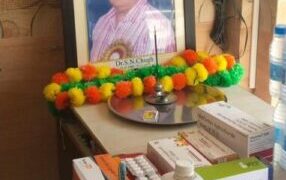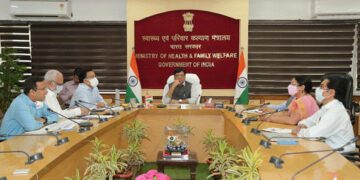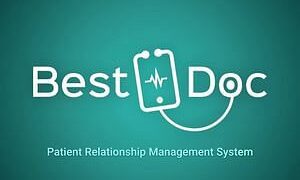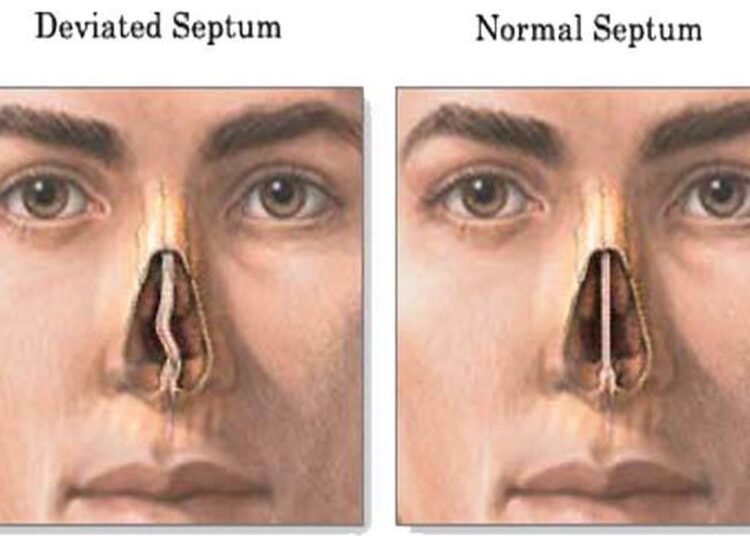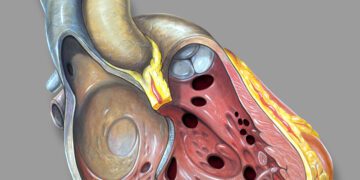By Health In Five Writer
A team led by Dr Sheetal Radia, ENT & Head Neck Surgeon, Wockhardt Hospitals, Mira Road successfully performed a deviated septum correction surgery on a 10-year-old boy who was unable to breathe properly and had recurrent cold attacks. The patient is doing well after surgery and resumed his daily routine with ease.
Arav Rajpurohit, a resident of Mira Road got repeatedly used to getting cold attacks and breathing difficulties 7 years ago. He further encountered breathing problems and couldn’t sleep properly at night. He required frequent nebulization and felt uneasy.
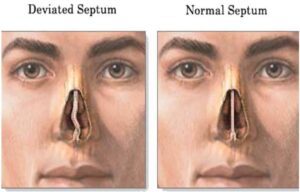
Dr Radia said, “On arrival, he had a completely blocked nose along with nasal discharge, sinusitis and repeated attacks of headaches, cold and cough. His one side nostril was completely blocked and he breathed through his mouth. He was having a deviated septum with adenoiditis (inflammation of the adenoid tissue) and sinusitis. So, sinusitis happens when the sinuses get filled with water and pus. The causes of sinusitis are recurrent cold attacks, infections due to bacteria and viruses, structural abnormalities in the nose due to deviated nasal septum, turbinate bone enlargement leading to nasal obstruction, nasal secretions, and sinusitis. Dust, pollutants, and pet and environmental allergies can lead to sinusitis. Since the boy was not able to breathe via the nose, he was scheduled to undergo surgery,”
Dr Radia added, “The septal correction surgery was done by straightening the nasal bone along with sinus surgery. The surgery lasted for 2 hours. We see many paediatric patients who are having chronic nose blocks with recurrent cold and cough attacks and deviated septum. Most of these patients breathe through the mouth, snore at night time and breathe by keeping the mouth open. Such patients also have enlarged adenoids (type of tonsils behind the nose where the nose and throat meet each other and the area is known as the nasopharynx). So, the parents of paediatric patients should check if the children are breathing through their mouths. Consult the ENT to see if the child has enlarged adenoids as it not only causes breathing problems but interferes with the normal growth of the child. Treating adenoids at the right time is important for the paediatric patient.”
“We were worried that our son would fall sick every now and then. He wasn’t able to breathe properly, suffered from cold attacks, and would require constant medical attention. He would take medication, feel fine for a day or two, and then again, the same problem cropped up. We wanted our son to lead a healthy life. We were ready to do whatever it takes to help him get back on track. Doctors at Wockhardt gave us confidence for surgery. Now, my son is fine, can breathe freely, and doesn’t get cold attacks. Make sure to pay attention to your child’s health issues and seek timely intervention,” concluded the patient’s mother Chanchal Rajpurohit.
The symptoms of sinusitis: A stuffy nose, runny nose, severe headaches, recurrent headaches hampering their daily work, redness and swelling of eyes, pain in eyes, throat pain recurrent, throat irritation, change in voice, post nasal drip leading to foul breath.
The complications: Not treating sinusitis at the right time leads to blurry vision, redness of eyes, swelling of eyelids, recurrent throat infections inviting tonsillitis, laryngitis (infection and inflammation of the larynx that is the voice box), chronic nasal obstruction and polyps tend to form in sinuses (polyps are swelling filled with water and infected pus). Polyps lead to chronic nasal obstruction leading to breathing problems.
The treatment: One will require surgery to remove nasal polyps. Don’t ignore sinusitis and consult the ENT on time to avoid complications.
Subscribe on WhatsApp & Telegram to receive real time updates
Follow Health In Five on LinkedIn, Facebook, Twitter & Instagram




